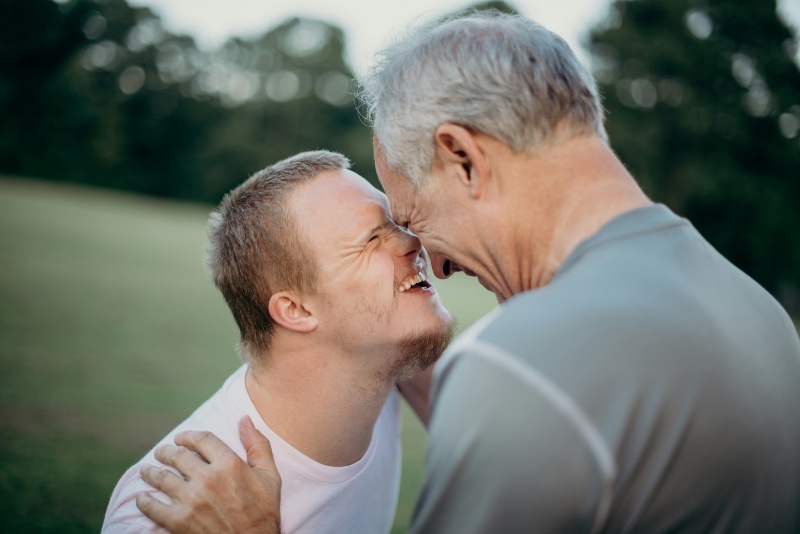- Personal Independence Payment (PIP)
Personal Independence Payment (PIP)
Personal Independence Payment (PIP) is designed to help individuals with the extra costs associated with long-term ill-health or physical disability. The benefit is designed to help you cover the extra costs caused by long term ill-health or disability and help you maintain personal independence.
You need to be aged 16 to 64 to could claim Personal Independence Payments (PIP). When you reach state pension age you will no longer be able to submit a new claim for Personal independence payment (PIP) but you can claim Attendance allowance.
The amount your PIP claim is worth depends on how your condition affects you, not the condition itself.
You’ll be assessed by a health professional to work out the level of help you can get. Your rate will be regularly reviewed to make sure you’re getting the right support.
You must be aged 16 to 64 (or have not yet reached your personal state pension age) and have a health condition or disability where you:
- have had difficulties with daily living or getting around (or both) for 3 months,
- expect these difficulties to continue for at least 9 months (unless you’re terminally ill with less than 6 months to live)
You must have lived in England, Scotland or Wales for at least 2 of the last 3 years, and be in one of these countries when you apply. If you’ve recently returned from living in another EEA country, you might be able to get Personal Independence payment (PIP) sooner.
You can claim PIP whether you’re working or not but you must not have reached state pension age. There are additional rules if you live abroad or if you’re not a British citizen.
Living abroad
You might still be able to get PIP if you:
- live in another EU or EEA country or Switzerland - you can only get help with daily living needs,
- are a member or family member of the Armed Forces.
If you’re not a British citizen
You must:
- normally live in or show that you intend to settle in the UK, the Republic of Ireland, Isle of Man or the Channel Islands,
- not be subject to immigration control (unless you’re a sponsored immigrant).
You might still be able to get PIP if you are a refugee or have humanitarian protection status.

Daily living
You may get the daily living component of PIP if you need help more than half of the time with everyday tasks like:
- preparing food, eating,
- washing, bathing and using the toilet,
- dressing and undressing,
- reading and communicating,
- managing your medicines or treatments,
- making decisions about money,
- engaging with other people
An 'everyday task' is something you do every day or commonly to get by in life. You may have extra living costs associated with completing certain everyday tasks because of your physical disability. Claim pip to help cover these costs.
Mobility
You may get the mobility component of Personal Independence Payment (PIP) if you need help going out or moving around. These are sometimes called 'mobility tasks'.
You can be awarded one or both parts of personal independence payment depending on your needs. As life goes on your condition might get better or worse. This might mean that when you first started claiming personal independence payment you only received the daily living component but later on you needed the mobility part too. This is why you can be awarded one or both parts of personal independence payment.

Terminal Illness
If you have a terminal illness and are not expected to live more than 6 months, you will qualify for the higher rate of the daily living component of Personal Independence Payment (PIP). This special consideration ensures that those facing the end of life receive the maximum financial support to manage their daily living needs without the standard assessment process.
Expedited Application Process:
The claim process for terminally ill individuals is expedited to provide prompt assistance. This is often referred to as the “Special Rules for Terminal Illness” (SRTI). Under SRTI, there is no need for a face-to-face assessment. Instead, the claim can be made by completing a form called the DS1500, which is filled out by a healthcare professional.
Daily Living
Those who qualify under the SRTI will automatically receive the enhanced rate of the daily living part of personal independence payment.
This component helps cover the cost of care and daily living needs, recognising the increased support required during this critical time.
Mobility
The rate of the mobility component under personal independence payment for terminally ill individuals depends on their specific needs and circumstances.
Unlike the daily living component, the mobility component is not automatically awarded at the enhanced rate. Instead, it is assessed based on the individual’s ability to move around and their specific mobility needs.
Support and Assistance
For terminally ill claimants, the process is designed to be as straightforward and supportive as possible. Claims can be submitted by the individual, a family member, or a representative.
The Department for Work and Pensions (DWP) aims to process these claims quickly, often within 2 weeks, to ensure that support is provided without unnecessary delays.
Other Benefits and Support
In addition to personal independence payment, individuals with a terminal illness may also be eligible for other forms of support, such as Attendance Allowance (if you have reached the state pension age), Employment and Support Allowance (ESA), and Universal Credit.
These benefits can help cover additional costs and provide financial security during this difficult time.
Personal Independence Payment and a Mental Health Condition
If you have a mental health condition that means you need help with everyday tasks, you may be able to claim Personal Independence Payment (PIP).
PIP is designed to provide financial support for individuals who have difficulties with daily living or mobility due to a long-term illness or disability, including mental health conditions.
Eligibility Criteria
To qualify for Personal Independence Payment (PIP), you must have had difficulties with daily living or mobility for at least 3 months and expect these difficulties to continue for at least 9 months. The difficulties must arise from your mental health condition and significantly impact your ability to perform daily activities.
Assessment Process
When applying for PIP due to a mental health condition, you will undergo an assessment to evaluate how your condition affects your daily life. This assessment is typically conducted by an independent healthcare professional who will ask about your condition, your daily routine, and the challenges you face.
Daily Living
The daily living component of PIP is intended to help cover the costs of assistance with everyday tasks. This includes activities such as preparing food, managing medication, washing and bathing, dressing, communicating, and making decisions about money. The level of support you receive is based on the extent of your difficulties in these areas.
Mobility
The mobility component focuses on your ability to plan and follow journeys or move around. For individuals with mental health conditions, this might include difficulties with traveling independently due to anxiety, panic attacks, or other related issues. The assessment will consider your need for support when going out and about.
Rates of Payment
PIP is paid at two rates for both the daily living and mobility components: standard and enhanced. The rate you receive depends on the severity of your condition and the level of support you require.
- Standard Rate: For individuals who need some help with daily living or mobility activities.
- Enhanced Rate: For individuals who need extensive help with daily living or have significant difficulties with mobility.
Support and Assistance
Applying for PIP can be a complex process, and it’s important to provide detailed information about how your mental health condition affects your daily life. You may find it helpful to seek support from a healthcare professional, a support worker, or a charity specializing in mental health. They can assist with filling out the application form and preparing for the assessment.
Means-Tested Benefits and Tax Credits Relating to PIP
Personal Independence Payment (PIP) is a non-means-tested benefit, which means it is not affected by your income or savings. However, receiving PIP can have an impact on other means-tested benefits and tax credits. Here's how PIP interacts with these financial supports:
Means-Tested Benefits
Means-tested benefits are those that take your income and savings into account when determining eligibility and the amount you receive. Receiving PIP can affect your entitlement to the following means-tested benefits:
- Universal Credit (UC): If you receive PIP, it can increase the amount of Universal Credit you are entitled to. PIP is not counted as income for UC purposes, and you may be eligible for additional elements, such as the limited capability for work and work-related activity element.
- Housing Benefit:PIP can lead to higher rates of Housing Benefit, as it indicates a higher level of need. Housing Benefit does not consider PIP as income, and you may qualify for additional premiums that increase your benefit amount.
- Income Support:If you are receiving Income Support, getting PIP can entitle you to extra premiums, increasing your overall benefit amount.
- Employment and Support Allowance (ESA): Similar to Income Support, PIP can lead to additional premiums in ESA, especially if you are in the support group.
- Council Tax Reduction: Many local authorities offer a reduction in council tax for those receiving PIP. The exact amount varies by council, but it can significantly lower your council tax bill.
Tax Credits
Tax credits, specifically Working Tax Credit (WTC) and Child Tax Credit (CTC), are also impacted by receiving PIP:
- Working Tax Credit (WTC):If you or your partner receive PIP, you may qualify for the disability element of Working Tax Credit. This can substantially increase the amount you receive, acknowledging the additional costs associated with disability.
- Child Tax Credit (CTC):If you have a child who receives PIP, you may be eligible for the disability element of Child Tax Credit. This additional amount helps cover the extra costs of caring for a disabled child.
Carer's Allowance
If you are a carer for someone receiving PIP, you may be eligible for Carer's Allowance. Carer's Allowance is not means-tested, but it can affect the means-tested benefits of both the carer and the person being cared for.
Additional Considerations
- Disability Premiums: Many means-tested benefits include disability premiums for those receiving PIP. These premiums increase the amount of benefit you receive and are designed to help with the extra costs of living with a disability.
- Impact on Household Income: While PIP itself is not means-tested, it can increase your overall household income. This can have a positive effect on your eligibility for other benefits and credits, providing additional financial support.
Got a question about Personal Independence Payment (PIP)?
Get advice based on your personal circumstances.
Ask our Advisors a Question